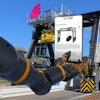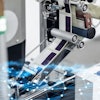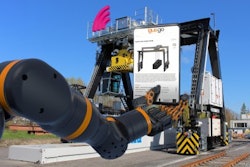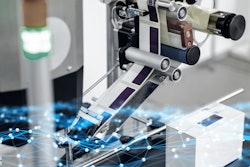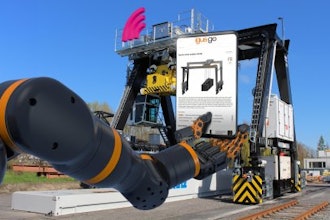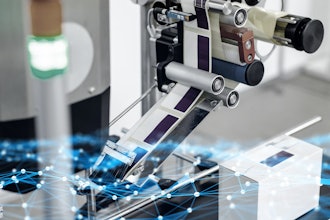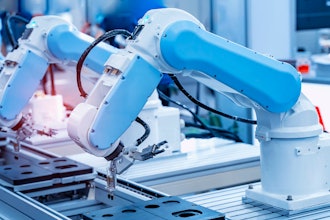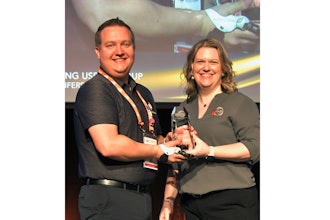TOKYO (AP) -- Panasonic Corp., which faces a tough road this year after Japan's earthquake, tsunami and nuclear crisis, believes it can turn disaster into opportunity as the country rethinks its energy policy.
President Fumio Ohtsubo said Friday his company's recent efforts to move toward environmentally friendly products and renewable energy technologies would eventually pay off.
Like other Japanese companies, Panasonic faces intense competition from newcomers and aggressive Asian rivals in its mainstay consumer electronics business. The Osaka-based company, which makes Viera TVs and Lumix digital cameras, decided it needed to seek new growth elsewhere.
If Panasonic sticks to audiovisual and white goods, then "our future growth will be limited," Ohtsubo told reporters in Tokyo.
Panasonic's goal is to transform itself into "the No. 1 green innovation company in the electronics industry" by 2018. It aims to grab the biggest share of the worldwide market for lithium-ion batteries, and use its acquisition of Sanyo Electric Co. to jump into the top three in the global solar business.
Japan's disaster could set the stage for that to happen.
The country faces potential power shortages this summer, without electricity from the crippled Fukushima Dai-ichi nuclear plant, which was knocked out by the tsunami. The Hamaoka nuclear plant in central Japan is also being shut down because of safety fears, further crimping energy resources.
The government has asked companies to cut electricity use by 15 percent. At home, people are being encouraged to set room temperatures at 28 degrees Celsius (82 degrees Fahrenheit), use fans instead of air conditioners and unplug gadgets.
Earlier this, Prime Minister Naoto Kan announced that Japan would overhaul its long-term energy policy, which had included a plan to raise the country's reliance on nuclear energy from 30 percent to 50 percent. The government, Kan said, will place greater focus on renewable energy such as solar, wind and biomass, as well as conservation.
For Panasonic, the new thinking on energy represents a "big chance" for the company, Ohtsubo said.
"In the mid- to long-term, there are big overlaps between Japan's recovery vision and Panasonic's concept," he said.
It will first have to weather challenges in the short term.
Ohtsubo said he expects this fiscal year to be "extremely difficult," with sales slumping in the aftermath of March 11 disasters. Also weighing on the company are potential power shortages this summer and shortages of components that continue to hamper production.
Last month, Panasonic said it is cutting about 17,000 jobs worldwide over two years as part of restructuring. The company will streamline operations to boost profitability, including selling some of its businesses, and reduce its nearly 367,000 workers to 350,000 by the fiscal year ending March 2013.
Ohtsubo said Friday that the cuts would affect a roughly equal percentage of workers in Japan and overseas.
Panasonic reported a 40.7 billion yen ($499 million) loss for the January-March quarter. The loss was largely due to 61 billion yen ($748 million) in restructuring costs. Panasonic had reported an 8.89 billion yen loss for the same period the previous year.
The company did not release forecasts for the fiscal year that began April 1 because it could not yet calculate the full damage from the disasters.
President Fumio Ohtsubo said Friday his company's recent efforts to move toward environmentally friendly products and renewable energy technologies would eventually pay off.
Like other Japanese companies, Panasonic faces intense competition from newcomers and aggressive Asian rivals in its mainstay consumer electronics business. The Osaka-based company, which makes Viera TVs and Lumix digital cameras, decided it needed to seek new growth elsewhere.
If Panasonic sticks to audiovisual and white goods, then "our future growth will be limited," Ohtsubo told reporters in Tokyo.
Panasonic's goal is to transform itself into "the No. 1 green innovation company in the electronics industry" by 2018. It aims to grab the biggest share of the worldwide market for lithium-ion batteries, and use its acquisition of Sanyo Electric Co. to jump into the top three in the global solar business.
Japan's disaster could set the stage for that to happen.
The country faces potential power shortages this summer, without electricity from the crippled Fukushima Dai-ichi nuclear plant, which was knocked out by the tsunami. The Hamaoka nuclear plant in central Japan is also being shut down because of safety fears, further crimping energy resources.
The government has asked companies to cut electricity use by 15 percent. At home, people are being encouraged to set room temperatures at 28 degrees Celsius (82 degrees Fahrenheit), use fans instead of air conditioners and unplug gadgets.
Earlier this, Prime Minister Naoto Kan announced that Japan would overhaul its long-term energy policy, which had included a plan to raise the country's reliance on nuclear energy from 30 percent to 50 percent. The government, Kan said, will place greater focus on renewable energy such as solar, wind and biomass, as well as conservation.
For Panasonic, the new thinking on energy represents a "big chance" for the company, Ohtsubo said.
"In the mid- to long-term, there are big overlaps between Japan's recovery vision and Panasonic's concept," he said.
It will first have to weather challenges in the short term.
Ohtsubo said he expects this fiscal year to be "extremely difficult," with sales slumping in the aftermath of March 11 disasters. Also weighing on the company are potential power shortages this summer and shortages of components that continue to hamper production.
Last month, Panasonic said it is cutting about 17,000 jobs worldwide over two years as part of restructuring. The company will streamline operations to boost profitability, including selling some of its businesses, and reduce its nearly 367,000 workers to 350,000 by the fiscal year ending March 2013.
Ohtsubo said Friday that the cuts would affect a roughly equal percentage of workers in Japan and overseas.
Panasonic reported a 40.7 billion yen ($499 million) loss for the January-March quarter. The loss was largely due to 61 billion yen ($748 million) in restructuring costs. Panasonic had reported an 8.89 billion yen loss for the same period the previous year.
The company did not release forecasts for the fiscal year that began April 1 because it could not yet calculate the full damage from the disasters.

